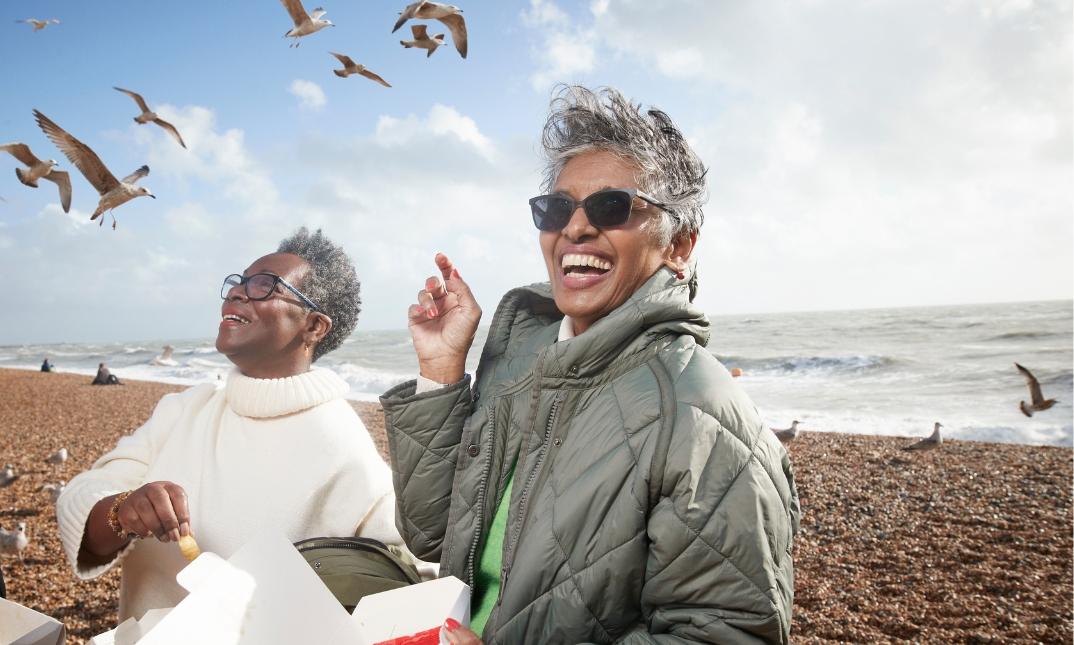Our sense of community often begins in the neighbourhoods we grow up in—places where we feel secure, connected, and able to thrive. If we’re lucky, this means access to safe spaces, education, employment, and opportunities to socialise freely.
However, not all of us are able to stay in the place we call home. Fleeing one's home country is a decision which no one makes lightly. For asylum seekers and refugees, it is often forced by violence, persecution, or war within their communities—circumstances that leave lasting scars, both physically and mentally. Trauma from these experiences significantly impacts mental health, putting individuals at a higher risk of developing long-term challenges.
While seeking sanctuary in a safe country like the UK can mark the beginning of a fresh start, the reality is far from simple. The journey is fraught with uncertainty—awaiting Home Office decisions, coping with frequent relocations, the threat of detention or deportation, financial struggles with no right to work, and experiencing racism and discrimination. All of these factors compound the mental health challenges faced by asylum seekers, making it harder for them to heal and integrate into new communities.
A stable and inclusive community is vital for mental wellbeing. Yet, constant upheaval and uncertainty often prevents asylum seekers and refugees from laying down roots and reaping the benefits of belonging to a safe, welcoming environment. Recognising this, the Mental Health Foundation has developed initiatives to support asylum seekers and refugees in looking after their mental health and contributing meaningfully to their new communities, providing a sense of belonging and purpose.
The healing power of community and creativity
At the Mental Health Foundation, we understand the positive impact that community connections can have on mental health. That's why many of our projects focus on bringing people together to share, collaborate, and create. Art and creativity often play a key role in our projects, offering individuals a way to process emotions and share their experiences in powerful, transformative ways.
Projects like Elevate and Our Power have not only fostered connection but also led to in inspiring exhibitions at prestigious art galleries in Glasgow. Other projects have included producing podcasts, writing workshops, and even the creation of a comic book.
For Mental Health Awareness Week, a group of women came together at Glasgow’s Gallery of Modern Art (GoMA) for an art workshop where they crafted artworks that celebrate the power of community and what it means to them. Their creations, inspired by collaboration and mutual encouragement, are now featured on postcards and tote bags available in our shop to raise money for the Mental Health Foundation’s work.
Watch our video showcasing the ‘Community’ art workshop.
I like being part of the Mental Health Foundation projects because they give me the chance to get all my thoughts and feelings out: I can explain how I’m feeling or how I’m suffering. It helps to keep my mind clear, and it helps my mental health. I like doing the art projects, meeting new people, talking and sharing opinions. I’ve made many new friends at the projects.
The Mental Health Foundation [projects are] like a home away from home. I can express my feelings there. I feel safe to share my thoughts and ideas. If it wasn’t for Mental Health Foundation I would have really struggled. I am a creative person, I am an outspoken person, I am a person who likes to do things. When I started Mental Health Foundation activities it broadened my horizons and helped me address mental health issues like loneliness and being worried about being on my own. I looked forward to coming. It is a safe space. It is a good space.
Taking part in this project with other people, it feels like we are together. I feel like I belong. We are like a family. There is a oneness and unity.”
The challenges of seeking asylum do not end when people reach the safety of the UK. People can be retraumatised through their post-migration experiences as they navigate harsh Home Office processes and contend with repeated setbacks and barriers. That’s why projects such as those run by Mental Health Foundation to support people to be included in their new communities and protect their mental health are so important.
Buy limited-edition products created at our workshop
We've created some limited-edition products based on the designs created by ou programme participants in the workshop at Glasgow’s Gallery of Modern Art. Check them out and order below.
How community benefits your mental health
Being part of a community can make life feel more meaningful and enjoyable, help us feel happier and safer, and improve our mental health. Read our 10 tips on how to get involved in your community.
Read our blog
How to foster positive community in group settings
Sam, Project Manager of Mental Health Foundation’s Bridges to Belonging project working with asylum seeking and refugee groups, shares their view and tips on fostering positive community in group settings.
Without community, there’s no mental health. We can’t afford to ignore it
Thriving communities support good mental health, but poverty, inequality, and underinvestment have eroded them. We urge government action to rebuild communities and prevent mental ill-health through systemic change.
Mental Health Awareness Week
Since 2001, the Mental Health Foundation has been leading Mental Health Awareness Week - bringing the UK together to focus on getting good mental health. This year, the week takes place from 12 to 18 May 2025 and the theme is 'community'.
Find out more